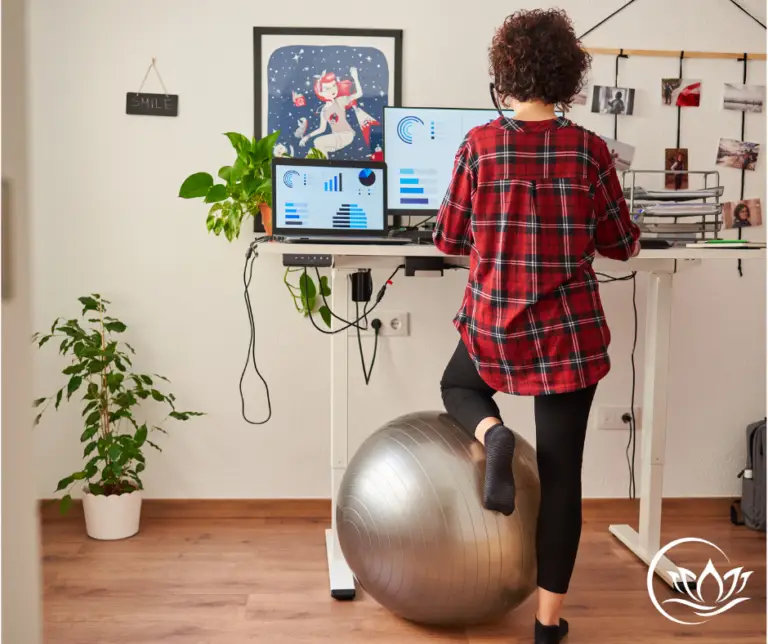How to Talk About Menopause
Breaking the Stigma: How to Talk About Menopause Openly and Empower Other Women
Menopause has been whispered about for far too long—let’s change that and learn how to talk about menopause.
For decades, menopause has been treated as a taboo topic, often shrouded in embarrassment, misinformation, or silence. The result? Women navigating one of the most significant changes in their lives feel isolated, unprepared, and unsupported. But it doesn’t have to be this way. By breaking the stigma around menopause, we not only empower ourselves but also pave the way for future generations of women to thrive through this natural transition.
It’s time to shift the narrative and talk about menopause openly—at home, in the workplace, and in our communities. Here’s how we can start the conversation and foster an environment of support and empowerment.
Understanding the Stigma: Why Silence Hurts Us All
Cultural norms have long framed menopause as a “loss”—a loss of youth, fertility, and vitality. This outdated narrative perpetuates shame and keeps women from embracing menopause as a powerful, transformative stage of life.
A 2022 survey by the Menopause Foundation of Canada found that 46% of women felt unprepared for menopause, while a Fortune report revealed that 92% of women believe more education is needed about the menopause journey. Additionally, a report by the Fawcett Society highlighted that many menopausal women feel let down by employers and healthcare providers, further emphasizing the widespread workplace challenges and emotional isolation women face due to a lack of understanding and support.

When we stay silent about menopause, we contribute to the problem. Silence allows myths to persist, normalizes a lack of support, and isolates women who are struggling. Breaking this cycle starts with talking openly—and unapologetically—about what we’re experiencing.
Starting the Conversation: Small Steps with Big Impact
Talking about menopause can feel daunting, especially if you’re used to keeping it private. But these small steps can make a big difference in normalizing the conversation:
1. Find Your Starting Point
Begin by sharing your personal experience in a safe space, such as with a close friend, a trusted family member, or a women’s support group. A simple statement like, “I’ve been noticing changes in my body lately—menopause has been quite the journey!” can open the door to a meaningful dialogue.
2. Use Humor to Lighten the Mood
Menopause doesn’t have to be a serious topic all the time. A little humor can break the ice. For example, you might say, “If I’m sweating, it’s not because I’m nervous—it’s just another hot flash!” Humor helps normalize the experience and makes others more comfortable joining the conversation.
3. Leverage Shared Media
Share a book, article, podcast, or YouTube video about menopause with someone close to you. Use it as a springboard for discussion: “I just watched this great video on menopause—did you know most women don’t feel prepared for it? What do you think?”
Talking to Family and Friends: Building Understanding
1. Educate Without Overloading
Start by explaining menopause in simple terms: “Menopause is a natural phase every woman goes through, usually in her 40s or 50s. It’s when hormone levels change, which can cause symptoms like hot flashes, mood swings, and sleep disruptions.”
Avoid overwhelming your listener with medical jargon; focus on fostering empathy and understanding.
2. Ask for Support, Not Sympathy
Let your loved ones know how they can support you. For example:
- “I’m feeling a little irritable lately—it’s part of the hormonal changes. I’d really appreciate your patience.”
- “I’m working on managing my sleep during menopause, so quiet evenings would help a lot.”
When you frame it as a request for partnership, not pity, it encourages collaboration and understanding.
3. Include Partners and Children in the Conversation
Menopause affects the whole family. Explain how your experience might impact daily life, and invite them to ask questions. For example, you could say, “I’m going through some changes right now, which might make me feel tired or moody. It’s nothing to worry about, but I want you to understand what’s happening.”
Advocating for Yourself at Work
Menopause can present challenges in the workplace, from managing hot flashes during meetings to dealing with fatigue and brain fog. But advocating for yourself can create a ripple effect, encouraging a more supportive environment for all women.
1. Know Your Rights
In many countries, menopause-related challenges are beginning to be recognized as workplace concerns. Research your local workplace policies to see if accommodations are available.
2. Speak to Your Manager or HR
When discussing menopause at work, focus on how adjustments can improve your productivity. For example:
- “I’d benefit from a flexible schedule or the option to work from home during difficult days.”
- “Could we adjust the office temperature slightly or allow a fan at my desk to manage hot flashes?”
By framing the conversation in terms of solutions, you demonstrate professionalism while advocating for your needs.
3. Encourage Workplace Education
Suggest workshops or resources on menopause awareness for your workplace. For instance, “I’ve noticed menopause isn’t talked about much here—what if we hosted a lunch-and-learn session on it? It could benefit a lot of people.”
Empowering Other Women
The more we talk about menopause, the more we normalize it—and that’s empowering for all women. Here’s how you can inspire others to join the conversation:
- Start a Support Group: Create a safe space for women to share their experiences, whether it’s a monthly meetup, a private Facebook group, or an informal book club.
- Share Your Story: Whether it’s on social media, in a blog post, or during a casual coffee chat, your openness can encourage others to share their own journey.
- Be a Mentor: If you know younger women approaching menopause, offer guidance and reassurance. Let them know they’re not alone and that thriving through menopause is possible.
A Movement Toward Empowerment
By breaking the silence around menopause, we reclaim our power and rewrite the narrative. Menopause isn’t a burden or a “loss”—it’s a natural, transformative stage that deserves respect and open dialogue. When we talk about it, we empower not only ourselves but also the women around us to navigate this journey with confidence and strength.
Let’s make menopause a conversation, not a secret. Together, we can turn this chapter into one of connection, support, and growth.
Do you have a story about breaking the stigma around menopause? Share it with us in the comments or with a friend who might need to hear this message. Let’s keep the conversation going!







